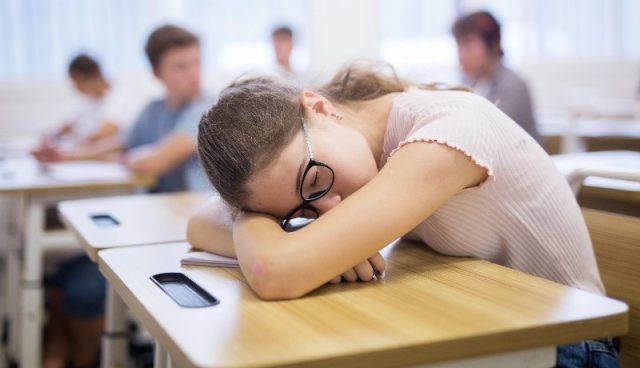Study of 15-year-olds reveals associations for academic performance and behavioral trouble at school
By Lori Solomon HealthDay Reporter
WEDNESDAY, April 10, 2024 (HealthDay News) — Later sleep timing and greater sleep variability are risk factors for certain academic problems among adolescents, according to a study published online March 5 in SLEEP.
Gina Marie Mathew, Ph.D., from Stony Brook University in New York, and colleagues examined associations of multiple actigraphic sleep dimensions with academic functioning among adolescents. The analysis included 774 participants (age 15 years) in the Future of Families and Child Wellbeing Study.
The researchers found that later sleep timing and greater sleep variability were associated with poorer academic outcomes, including sleep onset variability with higher odds of receiving a D or lower (odds ratio [OR], 1.29). Sleep onset (β = −0.07), sleep offset (β = −0.08), and sleep duration variability (β = −0.08) were associated with fewer A grades, while sleep offset was associated with lower grade point average (β = −0.07). Sleep offset (OR, 1.11), sleep duration variability (OR, 1.31), and sleep onset variability (OR, 1.42) were associated with higher odds of being suspended or expelled in the past two years, while sleep duration variability was associated with greater trouble at school (β = 0.13).
“Promoting sufficient, regular sleep timing across the week may improve adolescent academic functioning,” the authors write.
Abstract/Full Text (subscription or payment may be required)
Copyright © 2024 HealthDay. All rights reserved.



















